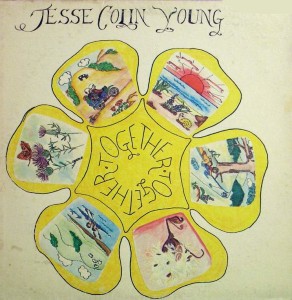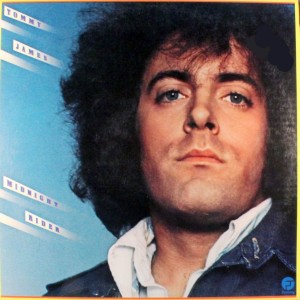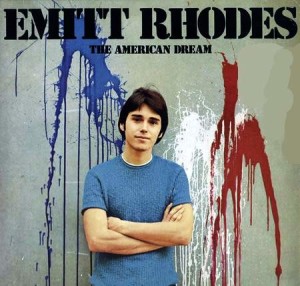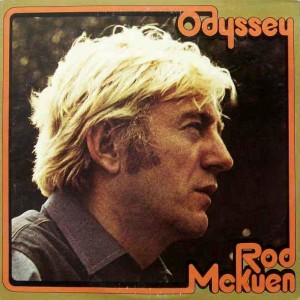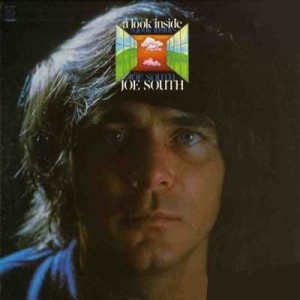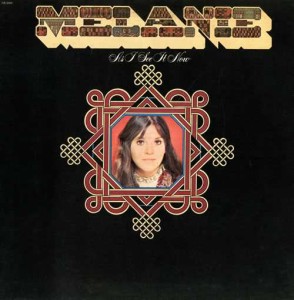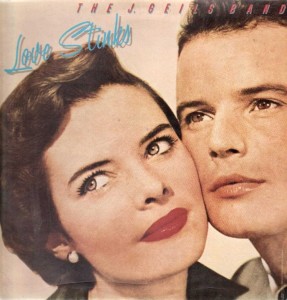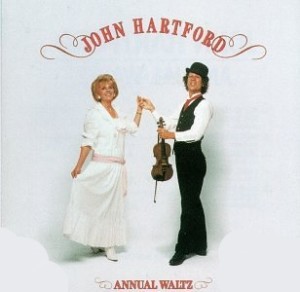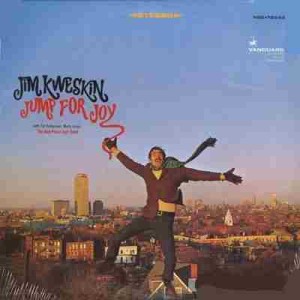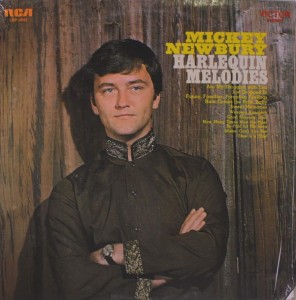
Mickey Newbury was born in 1940 in Houston, Texas.
wikipedia fills in the biographical details well: "As a teenager, Newbury sang tenor in a moderately successful vocal group called The Embers. The group opened for several famous performers, such as Sam Cooke and Johnny Cash. Although Newbury tried to make a living from his music by singing in clubs, he put his musical career on hold at age 19 when he joined the Air Force. After four years in the military, Newbury again set his sights on making a living as a songwriter. Before long, he moved to Nashville and signed to the prestigious publishing company Acuff-Rose Music"
He found great success in this field, and in the late 1960s his songs were recorded by artists as from across the musical spectrum such as Willie Nelson, Tom Jones, Roy Orbison, Solomon Burke, Don Gibson, Eddy Arnold, Andy Williams, The Box Tops, The First Edition and Jerry Lee Lewis. Many of these artists took his songs to the Top 10.
On the back of his song writing success Newbury decided to release his own album of new songs and songs made popular by others.
Wikipedia: "Ralph Emery referred to him as the first "hippie-cowboy" and along with Johnny Cash and Roger Miller, he was one of the first to rebel against the conventions of the Nashville music society. After his producer, Felton Jarvis, became the exclusive producer for Elvis Presley, Newbury got himself released from his contract with RCA and signed the first offer he received to comply with his condition that he could either produce his own albums or choose the producer.
He went on to record three albums in Wayne Moss's garage-turned-studio just outside Nashville. The influence of the production methods can be heard in the albums Waylon Jennings went on to record in the 1970s (with instrumentation highly unconventional for country music) and his poetically sophisticated style of songwriting was highly influential on Kris Kristofferson. It was Newbury who convinced Roger Miller to record Kristofferson's "Me & Bobby McGee", which went on to launch Kristofferson as country music's top songwriter. Newbury is also responsible for getting Townes Van Zandt and Guy Clark to move to Nashville and pursue careers as songwriters.
In 1974, he moved to a house on the McKenzie River in Oregon with his wife, Susan, and newborn son, Chris, where they welcomed three more children over the years. He recorded several albums throughout the 1970s for Elektra and ABC/Hickory, all of them critically praised, but financially unsuccessful. In 1980, he was given the distinction of being the youngest songwriter ever inducted into the Nashville Songwriters Hall of Fame. Although he spent much of the 1980s retired from performing and recording music, he returned to both recording and touring in the late 1980s before he died, in Springfield, Oregon, following a battle with emphysema on September 29, 2002, aged 62"
This, here, is Mickey's first album.
And, apparently, Mickey thought it was not a success. He actually disowned this album, and considered 1969's "Looks Like Rain" to be his true debut. He was disillusioned by Elvis Presley producer Felton Jarvis's production on this album. There were all sorts of sounds overdubbed and introduced to his songs to make the album BIG and perhaps overblown.
It's Mickey's music but I think he is being harsh on himself.
I have said before and, generally, this applies to all the Mickey albums I have heard, "his songs are gentle and flow over you. His stories are akin to a wise, gentle, melancholic drunk telling you about life and love in a bar late at night".
Here, the songs are still gentle but the arrangements and production makes them sound more like a sober man having a discussion with you in the middle of the day over a coffee.
Perhaps that's why Mickey went on to redo some of the songs on subsequent albums and by and large those later versions work better at what Mickey had in his head. (The re-recorded songs are "How Many Times (Must The Piper Be Paid For His Song)" on "Frisco Mabel Joy" (1971), "Good Morning, Dear" and "Sweet Memories" on "Heaven Help The Child" (1973), "Here Comes The Rain Baby" on "A Long Road Home" (2002)).
But Felton Jarvis had his finger on the sound of the times and, importantly, understands where Mickey is coming from so none of these tracks is ruined by Jarvis' attempts to make the songs more slick and commercial. The album wasn't a hit but wasn't a flop and importantly led to a lot more cover versions so Felton, perhaps, had made Mickey more accessible.
Of course this music is firmly located in late 1960s moody country pop (with southern soul and psychedelic overtones) much like what Elvis was doing at American Sound Studios with producer Chips Moman. (check out Mickey's wardrobe on the sleeve – it isn't exactly country).
Perhaps the "full production" annoyed Mickey who by the 1970s was leading the obscure country alt country singer songwriters movement (if there was one) but he wasn't above using studio tricks, full production and pop arrangements when he felt the need.
I haven't read the "Mickey Newbury: Crystal & Stone" biography by Joe Ziemer so there may be other reasons in there but there was no need for Mickey to be dismissive of this album.
He is in excellent voice and his singer songwriter, folky, country style is there with lyrics which are sublime. He is, here on his first album, a fully formed and developed singer songwriter, something he would tweak and play around with over his subsequent albums.
Allmusic suggest this is what a "Bob Dylan-literate Nick Drake was from Texas and produced by Pet Sounds-era Brian Wilson".
That is right but there is a lot more going on here.
If Mickey had recorded nothing after this album then this would be regarded as a lost classic of the era. It is only after Mickey's later work that you realise he could say so much more.
All tracks by Mickey unless noted.
Tracks (best in italics)
-
Sweet Memories – a magnificent song here and in it's rerecorded version.
-
Here Comes The Rain, Baby – a devastating song about a girl who only wants the sunny good times of love and can't take the rainy times.
-
Mister Can't You See – (Mickey Newbury/Townes Van Zandt) – Mickey was friends with a very young Townes Van Zandt and co-wrote this song with him ( and apparently also "Weeping Annaleah" though Townes isn't credited). A big , slow country pop song with horns. Dramatic it is, but it is effective also.
-
How Many Times (Must The Piper Be Paid For His Song) – Dylan-esque.
-
Are My Thoughts With You – This could have been covered by The Box Tops and sounds a little like Procol Harum's "A Whiter Shade of Pale" which The Box Tops also did.
-
Harlequin Melodies – a beautiful country lament, heavy on the strings.
-
Funny, Familiar, Forgotten Feelings – a near perfect country ballad with all the usual country motifs.
It's sad, so sad to watch love go bad,
but a true love would not have gone wrong.
I'm just thankful for the good times we've had
for without them I could not go on,
With all these funny familiar forgotten feelings
walkin' all over my mind.
I must go on, be strong,
tho' a million teardrops may fall,
Before these funny familiar forgotten feelings
stop walk' all over my mind.
-
Time Is A Thief – dramatic. I could see 70s era Elvis doing this (he didn't)
-
Good Morning, Dear – a country folk song with strings vaguely reminiscent of "MacArthur Park" (1968).
-
Weeping Annaleah – fantastic country with strings (and some more vague MacArthur Park sounds), baroque piano and ethereal charm to spare.
-
Just Dropped In (To See What Condition My Condition Was In) – pitching his voice in a more rock and pop mode Mickey tackles psychedelic country pop. Kenny Rogers and the First Edition would have a big hit with it (#5US). Totally groovy ….
And …
Wonderful …. I'm keeping it.
Chart Action
Nothing no where
Sounds
http://recordlective.com/Mickey_Newbury/Harlequin_Melodies/5cb2829f-e0b8-39fd-aeba-749f9f4e598d/
Sweet Memories
Live
https://www.youtube.com/watch?v=CrA_2u1ViOw
Weeping Annaleah
Mp3 attached
Mickey Newbury – Weeping Annaleah
Others
https://www.youtube.com/watch?v=GnJ73LbgnYM
https://www.youtube.com/watch?v=ZAlnYJXmO2Y
https://www.youtube.com/watch?v=fftYd60qETw
Review
http://en.wikipedia.org/wiki/Harlequin_Melodies
http://www.allmusic.com/album/harlequin-melodies-mw0000466969
http://www.allmusic.com/album/harlequin-melodies-the-complete-rca-recordings-plus-mw0002228758
http://stuckinthepast08.blogspot.com.au/2012/08/mickey-newbury-harlequin-melodies-1968.html
Bio
http://en.wikipedia.org/wiki/Mickey_Newbury
http://www.allmusic.com/artist/mickey-newbury-mn0000525789
Obituary
http://www.rollingstone.com/music/news/mickey-newbury-dies-20021001
Website
http://www.mickeynewbury.com/
Trivia
-
"The youngest person ever inducted into the Nashville Songwriter's Hall of Fame, Newbury was the only writer ever to have four songs in the Top 5 on four different charts simultaneously, which happened in 1968: Crooner Andy Williams had "Sweet Memories" atop the pop chart; Kenny Rogers – Newbury's old Houston buddy from Jeff Davis High School – and the First Edition had "Just Dropped In (To See What Condition My Condition Was In)" on the rock chart; Solomon Burke topped the R&B chart with "Time Is A Thief"; and Eddy Arnold struck country gold with "Here Comes the Rain, Baby." http://blogs.houstonpress.com/rocks/2010/11/mickey_newbury_houstons_forgot.php?page=2
-
Covers and originals:
"Sweet Memories" – covered subsequently (over 70 times apparently) including versions by Willie Nelson (1968), Dottie West & Don Gibson March (1969) , Ray Charles (1970), Andy Williams (1970) (#75 pop, #4 adult contemporary US), Jerry Reed (1972 ), The Everly Brothers (1972), Buffy Sainte-Marie (1972), Brenda Lee (1973) and many others
"Here Comes The Rain, Baby" – was a country hit for Eddy Arnold (#4 Country, #74 Pop, 1968) prior to the album's release. It has also recorded by Roy Orbison, Sammi Smith, and Don Gibson.
"Mister Can't You See" – became Buffy Sainte-Marie's only top 40 (#38 US) hit in 1972.
"How Many Times (Must The Piper Be Paid For His Song) " – was covered by The Walkabouts (2000
"Are My Thoughts With You?" – The First Edition (1968 ), Etta James (1970), Linda Ronstadt (1970), The Earl Scruggs Revue (1973 ), Doris Abrahams (1976).
"Harlequin Melodies" – Jim Ed Brown & The Browns (1969).
"Funny Familiar Forgotten Feelings" – was Newbury's first song writing hit, released by Don Gibson in 1967 (#8 Country) and Tom Jones, also in 1967 (#49 Pop). The song has also been recorded by Engelbert Humperdinck, Floyd Cramer, Vicki Carr, The New Christy Minstrels, and Dottie West among others.
"Time Is a Thief" – first done by Solomon Burke in 1967 and then subsequently by B.B. King (1982).
"Good Morning Dear" – has been done by Roy Orbison, Don Gibson, The Box Tops, Ray Charles, Pat Boone, Tennessee Ernie Ford, and Frank Ifield.
"Weeping Annaleah" – was included on The Box Tops' album Cry Like a Baby (1968) and was subsequently recorded as "Sleeping Annaleah" by Nick Cave in 1986.
"Just Dropped In (To See What Condition My Condition Was In)" – was originally cut by Jerry Lee Lewis but his version initially remained unreleased; it then became a huge psychedelic hit for Kenny Rogers & The First Edition (#5, Pop, 1968) Other cover versions include versions by Mojo Nixon (2001), Tom Jones (2012), by Nick Cave with Die Haut (1988), Supergrass (1995) and others.

